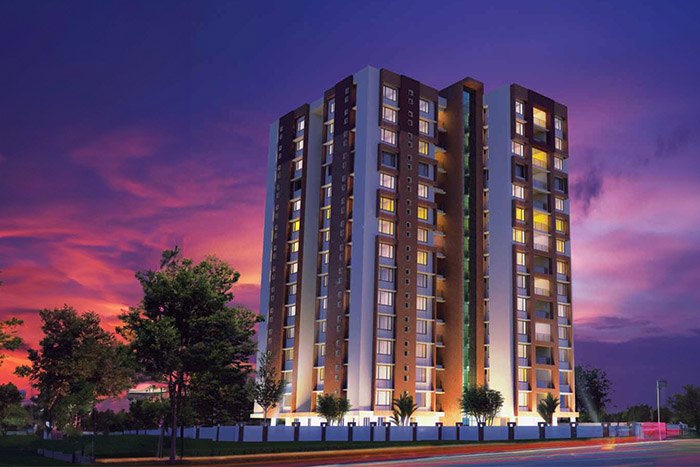
When buying an apartment or a house in a multi-story building, choosing the right floor can be as crucial as selecting the location or the layout of the home. The floor you live on can significantly impact your lifestyle, comfort, and even the resale value of your property. This article provides insights into the factors you should consider when deciding which floor is right for you.
One of the most compelling reasons for choosing a higher floor is the view. Higher floors often offer stunning vistas, whether it’s a city skyline, a nearby park, or a waterfront. Additionally, homes on higher floors generally receive more natural light, which can create a brighter, more inviting living space.
However, this comes with a trade-off. While higher floors offer better views and light, lower floors might be more shaded, which can be beneficial in hotter climates where you want to minimize direct sunlight. If having a picturesque view is a priority, opting for a higher floor is ideal.
Accessibility is a key factor, especially for families with young children, elderly members, or people with mobility issues. Lower floors are more convenient in this regard as they reduce dependency on elevators and make it easier to move in and out of the building.
Moreover, in emergencies like fire or power outages, lower floors are easier to evacuate. If accessibility and quick access to the outdoors are important, a lower floor may be more suitable.
Noise is an important consideration, especially in urban areas. Lower floors are more susceptible to street noise, traffic, and other external sounds. On the other hand, higher floors are generally quieter, offering a peaceful living environment, away from the hustle and bustle of the streets below.
For those who prefer tranquility and minimal noise disturbance, higher floors are a better choice. However, advancements in soundproofing can mitigate noise issues on lower floors, so it’s worth considering if the building offers such features.
Security is a critical factor for many homebuyers. Lower floors might be more accessible to burglars or intruders, particularly if the building’s security measures are not stringent. Higher floors are often considered safer since they are harder to access from the outside.
However, modern buildings usually have robust security systems in place, such as CCTV surveillance, security personnel, and secure entry points, which can minimize these risks. If security is a concern, ensure that the building’s security features are sufficient, regardless of the floor level.
The floor you choose can also impact your energy bills. Lower floors tend to be cooler, which might reduce the need for air conditioning in hot climates. Conversely, higher floors can be warmer and might require more cooling during the summer months but could be more energy-efficient during the winter.
Privacy is another important factor. Lower floors, particularly those close to street level, may experience more foot traffic and could be more visible to passersby, reducing your sense of privacy. Higher floors typically offer more seclusion, with fewer people looking directly into your windows.
If privacy is a significant concern, a higher floor might provide the peace and seclusion you desire.
Resale value is an essential consideration if you plan to sell your property in the future. Generally, higher floors command a higher price due to their views, reduced noise levels, and perceived status. However, the demand can vary depending on the region, building, and buyer preferences.
In some markets, ground-floor units or those with easy access might be more in demand, particularly among older buyers or those with young children. Researching market trends in your area can give you a better idea of how floor level impacts property value.
Choosing the right floor involves balancing various factors based on your lifestyle, needs, and preferences. Whether it’s the view, accessibility, noise levels, security, energy efficiency, privacy, or resale value, each factor plays a crucial role in determining the most suitable floor for you.
Take the time to assess what matters most to you and how each floor level aligns with your priorities. Remember, there’s no one-size-fits-all answer—what’s most important is finding the floor that best suits your unique requirements and enhances your living experience.